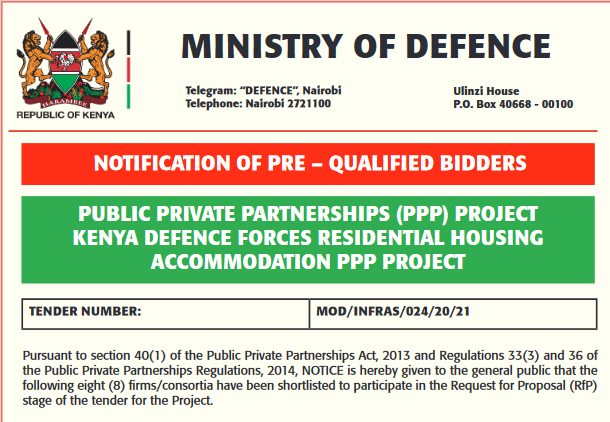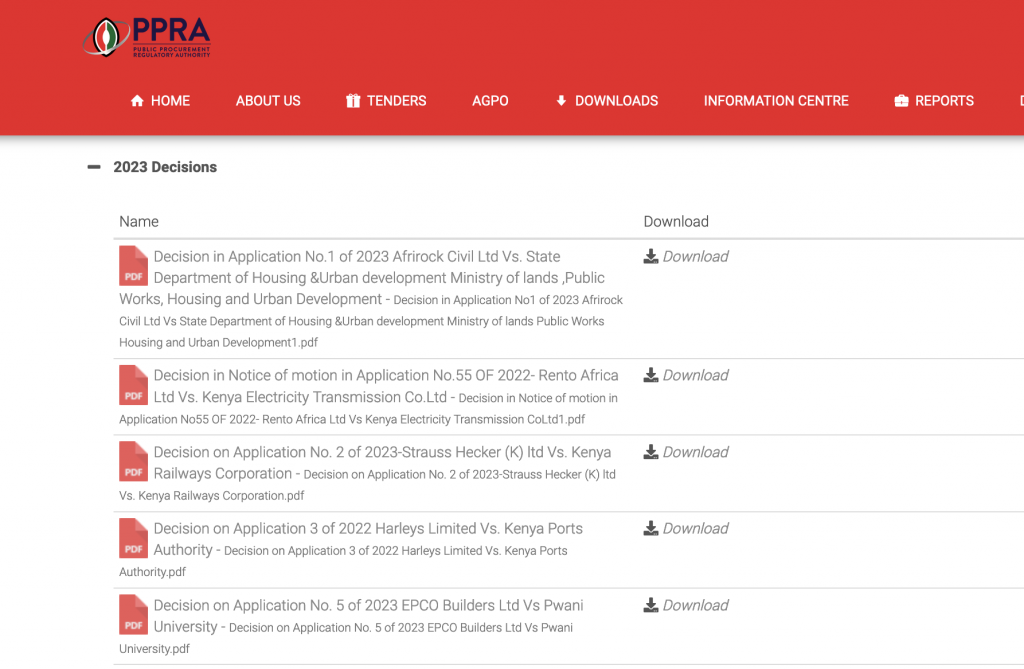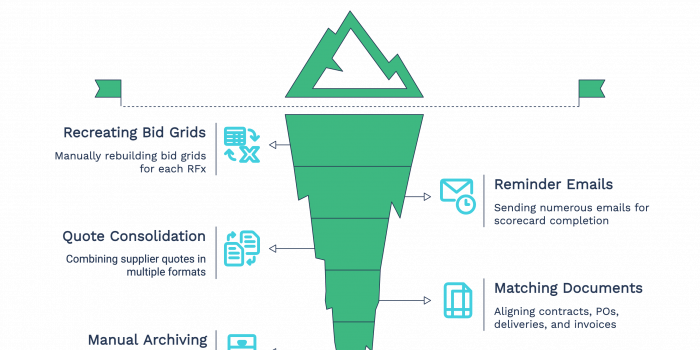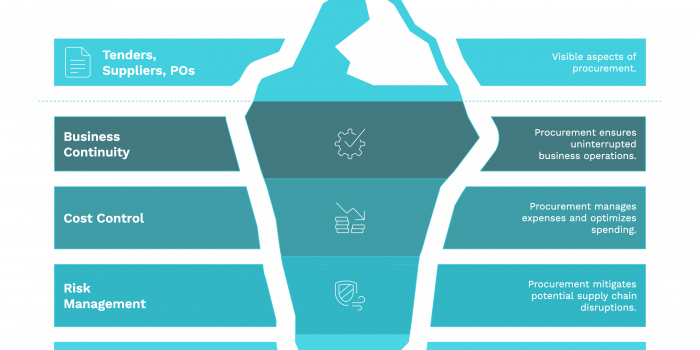Rights of Bidders in Public Procurement
Any bidder who intends to work with the government needs to under their rights throughout the procurement process.
1. Notification of Acceptance of Tender
The procuring entity is required to notify the successful bidder that their tender has been accepted, while at the same time notifying other bidders that their tenders were not successful. However, at least 14 days must elapse before a written contract may be entered into. This is to allow time for an application to be made for administrative review.
If the successful bidder refuses to enter into a written contract, the entity may award the contract to the next best evaluated bidder.

Unsuccessful Bidders
The rights of bidders applies to unsuccessful suppliers in allowing them to request the reasons why their bid was considered unsuccessful. The PPRA’s Public Procurement and Asset Disposal Act is clear that the Procuring Entity shall, within 14 days after a request, provide written reasons on why the tender, proposal or application to be prequalified was unsuccessful.
Further, it is within the rights of Bidders may also request a summary of the evaluation report pursuant to Section 36(1b) of the Act.
2. Request for Review
It is within the rights of bidders who feel aggrieved to request for a review of the procuring entity’s decision from the independent Administrative Review Board. The minimum requirements for lodging a request for review include: –
- The complainant must be a bidder in the procurement process he/she seeks to be reviewed. A candidate is a person who has submitted a tender to the procuring entity;
- The request should be made within fourteen days of the occurrence of the breach complained of or notification of award;
- The applicant seeking a review must specify the breach of duty which has or may result in the applicant suffering loss or damage;
- The Request for Review shall be presented in the manner of Form RB 1, which can be downloaded from the PPOA website
- The request for review should be accompanied by such statements as the complainant considers necessary to support its request;
- The complaint must be accompanied by the requisite fee. The fees for reviews are found in Part II of the Fourth Schedule to the Regulations. The fee payable upon filing a request for review depends on the value of the tender quoted by the complainant. In addition, there is an administrative fee of KShs 2,000; and
- The request should be submitted to the Board Secretary in 15 bound copies and a soft copy, pages of which should be consecutively numbered.
The following matters are not subject to review:
- The choice of a procurement procedure;
- A decision by the procuring entity to reject all tenders, proposals or quotations under Section 36 of the Act;
- Where a contract is already signed in accordance with Section 68 of the Act; and
- Where an appeal is considered by the Review Board to be frivolous.
Where an appeal is lodged, procurement proceedings will be suspended. The Review Board will complete its review within 30 days. A decision made by the Review Board is final and binding on the parties, unless an aggrieved party appeals to the High Court.

3. Terms of Payment
This varies based on a number of factors but the most common is based on the procurement categories as follows:
- Goods – Processing of payment for supply of goods commences after their receipt in store, verification that they meet specifications and signing of the delivery note. The standard terms of payment are 30 days from the date of invoice. The procuring entity is obliged by law to pay interest on overdue amounts, unless the contract provides otherwise.
- Services – Payment for services rendered is also due 30 days from the date of invoice after the user has confirmed that services meet the Service Level Agreement (SLA) which forms part of the service contract.
- Works – In major contracts for equipment and plant which may take some considerable time to complete, provision is normally made for progress payments on milestone achievements. Contracts for works provide in appropriate cases for mobilisation advances, advances on contractors equipment and materials, regular progress payments and reasonable retention amounts to be paid after full compliance with the contractor’s obligations under the contract.
This article is part of the Public Procurement Guidelines for Bidders series








